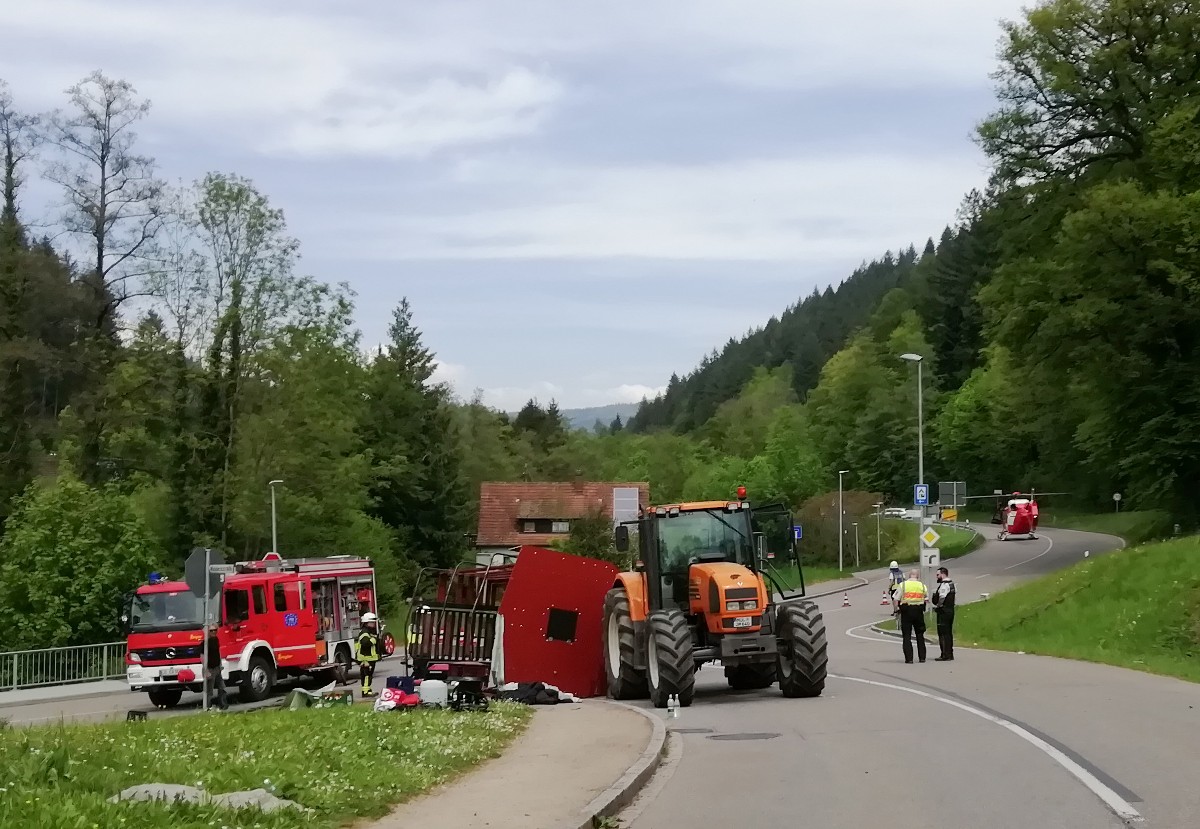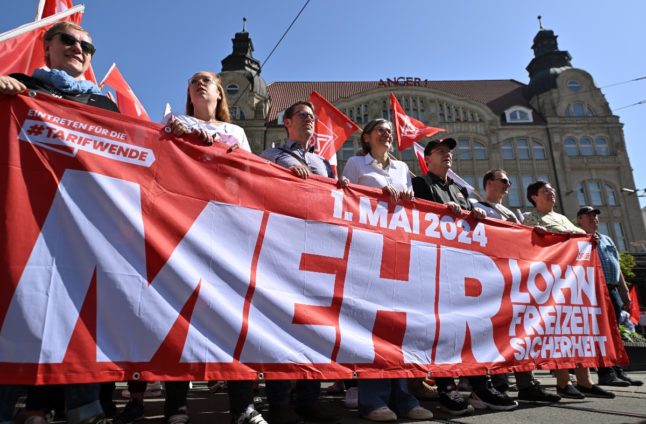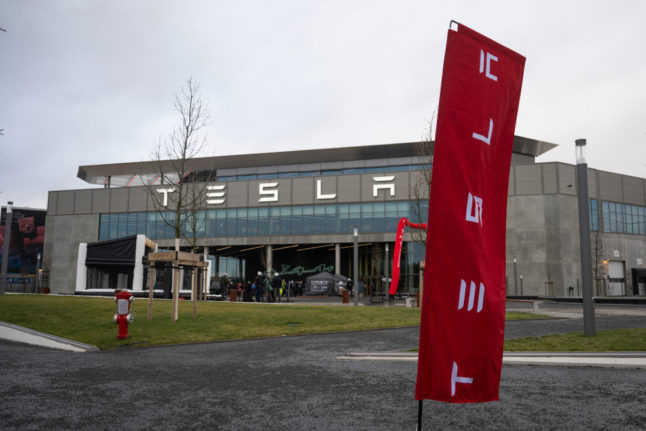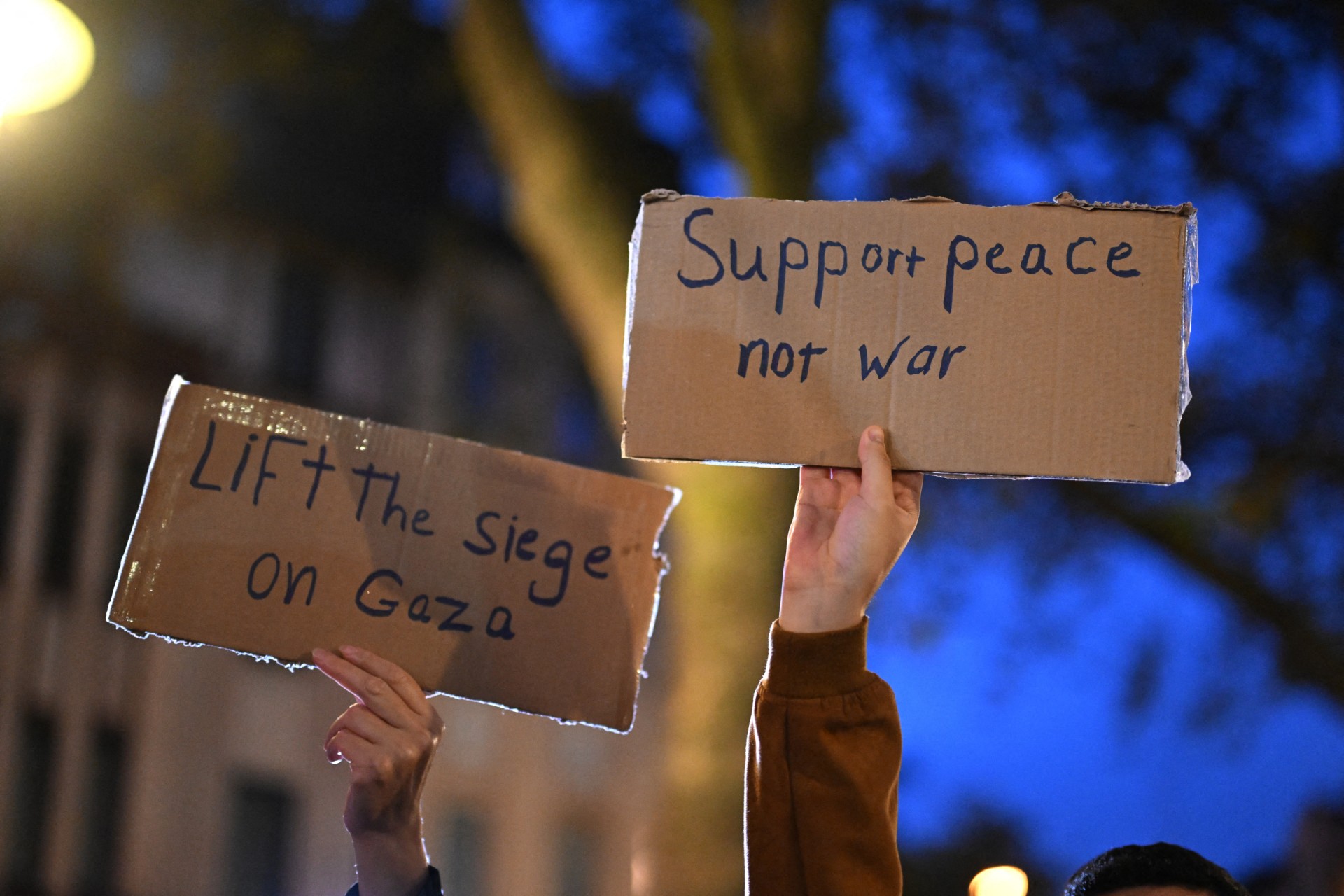30 injured, 10 seriously in German May Day parade accident
Around 30 people were injured, 10 of them seriously, after a float being pulled by a tractor overturned at a May Day parade in southwest Germany, police said.
It toppled as the tractor pulling it made a turn, they said in a statement.
Some of the injured were flown out for treatment, with some helicopters flying in from nearby Switzerland to help.
The accident happened around 1:05 pm on a road near the town of Kandern, which lies near the French border between the German city of Freibourg im Breisgau and Basel in Switzerland.

Unions demand ‘tariff turnaround’ and better working conditions in Labour Day rallies
Unions called for better working conditions and more collective bargaining at Labour Day rallies and events across Germany on Wednesday.
“More wages, more free time, more security,” said the chairwoman of the German Trade Union Confederation (DGB), Yasmin Fahimi, at a rally in Hanover.
In Münster, her deputy Elke Hannack spoke out in favour of more investments and more staff in the public sector.
The state should “fulfil its tasks at all levels and meet the needs of our citizens,” said Hannack, warning against austerity in education policy.
“It is important to have more educators, more teachers and more social work in schools and daycare centres, which need to be better equipped.”
Fahimi, meanwhile, called for a “tariff turnaround”.
Only half of all employees in Germany are now under the direct protection of a collective agreement, said the DGB chairwoman.
“Tariff flight” by employers causes economic damage of 130 billion euros every year, while collective agreements make employees free in the world of work, said Fahimi.
Such agreements ensured higher wages, fair pay and regular working hours.
There should be “not a cent of tax money for tariff evasion and wage dumping,” said Fahimi, adding that the government should take measures that go beyond the Federal Tariff Compliance Act so that 80 percent of jobs are once again bound by collective agreements.
SPD leader Klingbeil expects Ukraine to need support for years to come
SPD leader Lars Klingbeil expects Germany will need to provide financial and military support to Ukraine for years to come.
“We may have to mobilise money and weapons for another ten years to help Ukraine,” Klingbeil told the t-online portal, according to a statement on Wednesday. “We need the people’s mandate to do this,” he said, added that Germany’s security was also being defended in Ukraine.
Klingbeil also called for the public debate to focus on more than just arms deliveries. “Peace initiatives are being talked about all over the world, the peace conference in Switzerland is coming up, and we as Germany support that,” he said.
“We cannot allow the concept of peace to be occupied only by the Wagenknechts [left-wing party Sahra Wagenknecht Alliance] and the right-wing radicals from the AfD,” he added. Both parties understood peace to be a “surrender” to Russian head of state Vladimir Putin “and that is wrong,” he said.
At the same time, the SPD leader pointed out that Putin currently does not want to negotiate and that nothing will change in Germany’s Ukraine policy.
“The strategy remains to make Ukraine so strong that it can negotiate from a position of strength at the right time,” he said.
Left-wing protest in Stuttgart broken up after attacks on police
A demonstration by left-wing activists on Labour Day in Stuttgart was broken up after police officers were attacked.
Police said they cleared the area using pepper spray and batons, stating earlier that there had been “attacks on our colleagues”.
The police said they had asked participants in the demonstration to leave the meeting point in the city centre individually or in small groups.
Police in other German cities, including Berlin and Hamburg, were also preparing for large-scale operations at left-wing demonstrations on May 1st.
Germans want shorter working week
Germans want to work less, according to an unpublished study by the Institute of the German Economy (IW) seen in advance by the Rheinische Post newspaper.
Employees up to 25 wanted to work 35 hours per week in 2021, three hours less than in 2007.
26-40-year-olds wanted to work 34 hours per week, or two hours less than at the time of the previous survey, while over 40s wanted to work 32 hours per week, almost three hours less than before.
The IW study is based on regular surveys of tens of thousands of employees on a Socio-Economic Panel. The panel were asked how many hours they would like to work, with the knowledge that if working hours were reduced, they would also earn less money.
The desired weekly working hours of low-income workers up to the age of 25 saw some of the sharpest falls since 2007 – 6.3 hours per week, but even those on higher incomes wanted to work three hours less.
READ ALSO: How Germany is trialling the four day working week
For younger workers up to the age of 25 with low incomes, the desired working hours have fallen particularly sharply since 2007 – by 6.3 hours per week. But younger people with higher incomes also want to work three hours less. “The thesis that younger people are reducing their job offer because they are saturated and have lower consumer desires cannot be confirmed with the available data,” said the IW.
Among schoolchildren and students, the desire to work full-time fell from 62 to 48 percent between 2007 and 2021.
“The development of young people’s working time preferences indicates that their preference for leisure time has increased – in this respect, the hypothesis of leisure-oriented Generation Z could be seen as confirmed,” the IW study said.
But “the leisure time preference of older age groups did not increase to a lesser extent, so this is not something that is unique to the younger generation.”




 Please whitelist us to continue reading.
Please whitelist us to continue reading.
Member comments